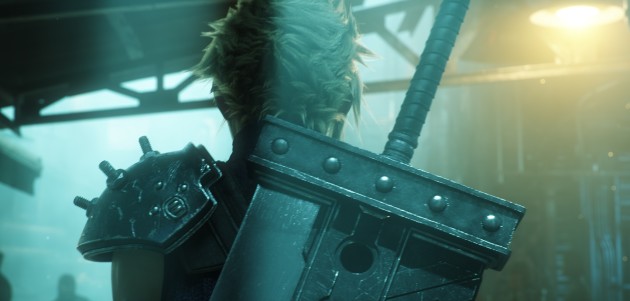We’re six months removed from E3 2015, and six months remain until E3 2016 falls upon us. We’ve had enough time to to sit back and reflect on the two consoles up until this point, and we have a lot more context to put Sony’s and Microsoft’s press conferences into now. I remember our determination that Sony squeaked by with a victory was met with some heated and passionate dissonance, but I still stand by it as the far more memorable show.
However, with six months behind us, which press conference still made the biggest promises that matter today?
Sony
Sony’s press conference was widely praised as making dreams come true. We walked away with not one but three major titles that fans had been dying to see for at least a decade: Final Fantasy VII Remake, Shenmue III and The Last Guardian. Shortly after the press conference, Shenmue III emerged as the biggest game in Kickstarter history, and Final Fantasy VII Remake has been pouring on controversial news that has been met with excitement and dismay by longtime fans.
Both were confirmed to not be PlayStation 4 exclusives, so there is no chance of that backfiring into Sony’s face. And in the meantime, The Last Guardian won’t be spoken of again until release to avoid spoilers, as Sony says.
As for games looming into 2016, Sony was well equipped with its own batch, including Uncharted 4: A Thief’s End, a new Ratchet & Clank game and movie, and the open-world dinosaur robot hunter thing Horizon Zero Dawn. Sony further elaborated its exclusive deal with Capcom on Street Fighter V, announcing that it had nabbed the loyalty of Call of Duty timed-exclusivity, and tossed in the extra Disney Infinity 3.0 timed-exclusivity for good measure.
Of all the big news that came from Sony, the only one that wound up turning against it was losing the timed-exclusivity to its major indie title, No Man’s Sky, after Hello Games announced that it would be coming to PC and PlayStation 4 at the same time.
Looking back at my original reactions, I didn’t mention any huge exclusives for the holidays in 2015, so I can’t give Sony points in that regard. The console eventually wound up getting Disgaea 5, Tales of Zesteria, and Dragon Quest Heroes, nerdy JRPGs and Musou games that would be best left in the hands of its own publishers to announce and market, but nothing that could compete with Halo 5 and Rise of the Tomb Raider.
I guess my conclusion remains the same as it did six months ago: Sony was planting seeds for the future, but its 2015 line-up was still weak. Fine for me since I gamed mostly on non-exclusives and handheld consoles for most of the year, but apparently not enough for some.
Microsoft
And then we have Microsoft, which I said put up a good fight, but fell at the feet of Sony’s immeasurable announcements.
The highlight of Microsoft’s show was not games, but rather, the Hololens demonstration. Without question, it was the biggest splash of the convention, but hands-on impressions gave the idea that it is hardly as perfect as Microsoft showed it off to be. It still needs a lot of work to be a legitimate force.
Microsoft’s other huge announcement, which proved to be its big win for 2015, was the backwards compatibility for Xbox 360 games on the Xbox One. There is no question that this scored wide praise for the company this year, and Sony’s half-neutered attempt at PlayStation 2 games on PS4 later in the year proved to not make a dent in Microsoft’s new-found reputation as a retro game supporter.
Of course, the waiting has proven to be the hard part. Much like the original Xbox games on Xbox 360, Microsoft will only release backwards compatibility for a limited number of titles in waves, and there is no guarantee if the game you want to play will be among the lucky chosen ones. Fine if you love popular games, but I don’t see Guardian Heroes HD turning up any time soon.
And then there were the games. Mirosoft played up ReCore, Scalebound, Halo 5: Guardians, Rare Replay, Rise of the Tomb Raider, Sea of Thieves, and Gears of War 4, a much larger selection of exclusives than what Sony had.
Since then, ReCore, my favorite game from the show, has been confirmed for a PC release. Scalebound has been delayed into 2017. Gears of War 4 was panned for its dark and cloudy showing, seeming like Microsoft shot its cork a bit too soon on that one.
Sea of Thieves looked interesting to some, but I thought it looked like a rushed answer to No Man’s Sky. What’s more, nobody is talking about it, so it couldn’t have made that big of an impression.
That leaves us with the three big exclusives that Microsoft walked away with in 2015. Halo 5: Guardians happened. Rise of the Tomb Raider will be on Steam before the month is out, and it only managed 1 million copies on the Xbox One. The debate is still going if that is a good figure or not, and the debate has long since been over if the whole timed-exclusivity idea was worth it.
And then there is Rare Replay, which I can’t think of anything negative about other than missing a few impossible games. Good show on that one, Microsoft!
Overall though, the holiday season was a bit lacking on the exclusives front, and it was the third-party companies’ chance to rise to the occasion. I need a lot more than Halo to be impressed anymore.
So, who’s got it?

















